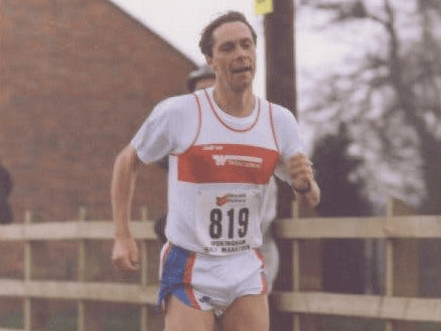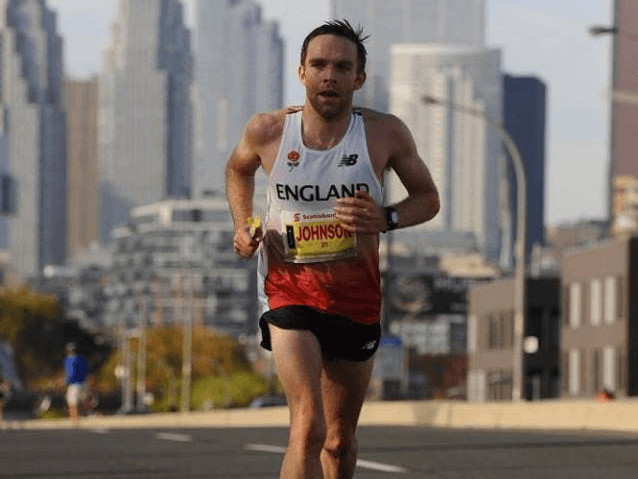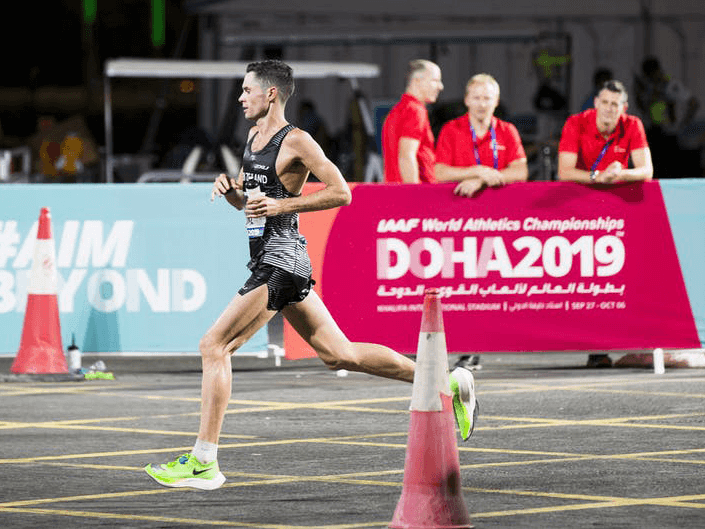WAYNE BUXTON, 2:16 MARATHONER, GB INTERNATIONAL & UKA QUALIFIED RUNNING COACH
Intro:
I first met Wayne through a mutual friend and incredible physiotherapist and Paralympian, Noel Thatcher, 5 years ago. At a very personal level, I have Wayne to thank for my own PB performances at marathon and half marathon distances which I’m certain I would not have achieved without his very specific coaching.
Prior to working with Wayne, I had run around 8 marathons and countless half marathons over almost 10 years, within 3 years of working with Wayne I had improved from a marathon PB of 2:45 to 2:37 and half marathon from 78 minutes to 74 minutes. I am a huge advocate of coaching and I think that good coaches play a hugely important role in helping athletes improve and also help to keep injuries at bay by encouraging dialogue with athletes as well as overseeing training workloads.
Major achievements
Personal Best Times; Marathon 2:16:38, Half Marathon 65:19, 10000m 29:32, 5000m 14:05:02, 3000m 8:07.6, 5miles Road 23:42
Performances of note:
- Selected to represent Great Britain and Northern Ireland of 5 occasions in the marathon.
- Represented the English Cross Country Union at Cross Country
- 3rd English Half Marathon Championships 1993
- South West of England Cross Country Champion 1993
- South West of England 5000m Champion 1991
- 2nd Inter-Counties 10000m Championships 1991
- 2nd Midland 5000m Championships 1989
- 1st Bristol Half Marathon 1990
- 1st Great Eastern Run Half Marathon 1993
- Twice winner (’87 and ’89) of the Brest International 10km road race (France)
- Competed in The Great Race, a three week 21 stage road race, starting in Glasgow and finishing in London.
- Honoured by the British Olympic Association and the National Coaching Federation for Services to Disability Sport following the 2000 Sydney Paralympic.
- Owner of online running coach company Classic Running
How did you get involved in athletics?
I started running at school and enjoyed doing track and cross country. My dad encouraged me to go to the Bristol Athletics Club and to train under the guidance of a coach called Derek Smith. This was a good move for me as I learned basic drills and stretches and did different types of training sessions, rather than just going out the door for a run.
I loved reading books by coaches such as Percy Cerutty and Arthur Lydiard and my dad would take me to parks to do some fartlek or hill sessions that I had read about. By the age of 17 I was hooked and I was running around 50 miles per week.
Did you do any track?
I managed to just about make the county teams at cross country while at school but never went to the English Schools on the track. However, I always saw track as the main goal. It was a dream to run on the track and represent my country but that was never to be. I didn’t have the raw speed for that, I only ran 14:05 for 5000m, but I truly believe without doing the track I would never have ran as quick as I did at the marathon.
I continued running track, even after I had started running marathons and actually ran some of my quickest 1500m times which were in the low 3:50’s
I did get a silver medal in the UK Inter-Counties 10,000m championships and a silver in the Midland 5000m.
How did you progress/get into marathon running?
There came a time when I realised the best chance I had of getting an international vest was to have a go at the marathon. I won my first half marathon which was Bristol in June 1990 and the prize was a voucher from a sports tour company and from that point onward I started planning my training to run in Rotterdam in April 1991.
What would a typical training week in a build up to a marathon look like? (e.g. mileage/sessions etc)
A typical weeks training didn’t change too much from the winter training I had been doing for the 5k and 10k on the track. Sunday runs were longer and there was a bit more mileage overall but the interval sessions were very similar. A typical week in the middle of a 16 week build-up looked something like this:
Monday: AM – 5 miles easy. PM – 5mile run to gym, circuits, 3 mile run home
Tuesday: AM – 5 miles easy. PM 2 miles warm-up. 12-14 x 1minute hills. 2 miles cool down
Wednesday: AM – 5 miles easy. Lunch – Gym work. PM – 10 miles steady
Thursday: AM – 5 miles easy. PM – 2 miles warm-up. 5x1k 2 miles cool down
Friday: AM – 5 miles easy. PM – 5 miles easy
Saturday: AM – 5 miles easy. PM – 2 miles warm-up. 12x90secs on undulating grass. 2 miles cool down
Sunday: AM – Easy/Steady 22 miles PM – 3 mile recovery jog
Often it was hills and only one other interval session per week. Then Thursday would be two 8 mile runs. Or would throw in something to work on running economy such as 4x10x100m, 75m jog recovery and 5 mins jog between sets usually on a Thursday before a race.
What sort of races do you like to include in a marathon build-up and how far out from race day?
The other main goal apart from the marathon was a half marathon 3-4 weeks before the marathon. This was key for establishing exactly how fit you were. I also ran many other 5k and 10k road races. If it was a spring marathon I would also include cross country races, although I hated the really muddy courses.
How much rest and sleep did you get when you are in a marathon build up?
I had quite a demanding job in IT, but at least it was a desk job, so that helped me with rest. I would always try to get at least 8 hours sleep. It was a very important part of the recovery process. I could have done with more!
Did you follow a specific diet when training?
I focused mainly on eating carbs to refuel and I would eat a lot. I had to watch my weight a little but I always had room for cake and biscuits. However, for the marathon I realised that my weight had to be at the minimum, so I cut out alcohol and as much fat as I could, even the cakes were fat free. This enabled me to get to my lowest weight of 59kg, I’m about 177cm tall. I was thin but very strong.
Did you complete regular strength and conditioning exercises?
I did circuits which were for the whole body. Gym work focused on the upper body. After most easy runs I would do sit-ups and press-ups. Stretching I hated, although I did do some but not enough.
What role did physio / massage /osteo play in your training?
Physio and massage were key for me to remain injury-free. Following a persistent groin injury that curtailed my progress for about 18 months at the age of 24 I started seeing physios and sports massage therapists regularly. I would often have a check-up with a physio, 3 or 4 days after a hard race whether I felt any injury or not. I had regular sports massage, normally every other week.
Did you rotate your footwear for different sessions throughout the week?
Yes, I always had 2 pairs of training shoes that were at different stages of wear and tear. I also had racing flats used in some interval sessions and cross country spikes were used for grass sessions.
I very rarely trained in shorts, I always wore long bottoms unless we were in a heatwave.
Did you have any mental preparation strategies/routines when you were racing?
I always had a race plan and knew exactly what pace I wanted to run. When I ran 2:16:38 in Rotterdam, I wanted to go through halfway in 67:30. I hit all my km splits virtually spot on and went through in 67:28.
I hope that you found Wayne’s training insight interesting.
If you’re having any niggles then please get in touch with me at scott@londonrunningphysio.com or if you’re interested in seeking some coaching input from Wayne, you can get in touch with him at wayne@classicrunning.co.uk
Happy running and keep safe.
Cheers
Scott



